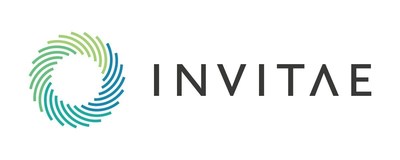Multi-site study to evaluate the role of testing guidelines in ensuring access to genetic information for men with prostate cancer
Invitae (NYSE: NVTA) has initiated enrollment for a nationwide study aimed at evaluating genetic testing guidelines for prostate cancer patients. This study seeks to identify clinically relevant genetic variants that could inform treatment options and improve patient care. Despite the growing importance of genetic information in prostate cancer management, existing guidelines remain restrictive. The study will analyze whether these guidelines effectively identify patients who could benefit from genetic testing, ultimately helping optimize cancer care for men diagnosed with the disease.
- Initiation of nationwide study could enhance genetic testing accessibility for prostate cancer patients.
- The study aims to evaluate and potentially simplify restrictive genetic testing guidelines, improving patient management.
- Increased genetic testing could lead to better-targeted therapies and potentially eligibility for clinical trials.
- Current genetic testing guidelines are described as restrictive, potentially limiting patient access to beneficial testing.
- The historical context of the guidelines indicates they may not align with modern treatment options and needs.
Insights
Analyzing...
SAN FRANCISCO, Sept. 3, 2020 /PRNewswire/ -- Invitae (NYSE: NVTA), a leading medical genetics company, today announced enrollment has begun for a nationwide study to better understand the role of current genetic testing guidelines in ensuring prostate cancer patients receive testing to identify clinically relevant genetic variants that can inform prognosis and support access to targeted therapies. The study is supported by Invitae and is part of the company's ongoing work to increase access to genetic information for men with prostate cancer.
"Currently, germline testing guidelines for patients with prostate cancer have evolved from more than one set of NCCN guidelines and some may still find these guidelines difficult to implement in everyday practice," said Neal D. Shore, M.D., F.A.C.S. from the Carolina Urologic Research Center in Myrtle Beach, South Carolina, and the principal investigator of the study. "Guidelines were established when testing was both more expensive and less accessible and don't address newer therapeutic approvals and trial literature for expanding therapeutic options, missing many patients whose clinical care and treatment choices could benefit from genetic information. Our study is intended to provide a deeper understanding of how these issues impact the care of men with prostate cancer so that we might improve how genetic information can be assessed and utilized for their cancer care and potentially inform their family members."
The use and importance of genetic information in the diagnosis and treatment of prostate cancer has been growing, particularly as the development of targeted treatments continues to accelerate. Despite its utility, guidelines governing testing among prostate cancer patients remain restrictive, and genetic information is underutilized in prostate cancer care. The study will determine whether guidelines are adequate in identifying patients who may benefit from genetic testing.
"Simplifying and possibly expanding current testing guidelines would provide benefits for medical management of men with prostate cancer and offer opportunities for targeted therapies, including PARP inhibitors and qualification for clinical trials," said Robert Nussbaum, M.D., chief medical officer of Invitae. "In addition, the genes involved in prostate cancer include BRCA1 and 2, which as we all know also play an important role in breast and ovarian cancer, and MSH6 and other genes involved in hereditary colon cancer. Widespread testing among men with prostate cancer could have an important role in not only improving their care but also the health of their relatives."
The study will enroll men across the country who have been diagnosed with prostate cancer. Both men who meet and don't meet current testing guidelines will be included to gather data on whether genetic testing results change treatment and recommendations. In addition, the study will also gather data on the patient's experience with genetic testing.
A study presented recently by Invitae at the American College of Medical Genetics and Genomics (ACMG) underscored the frequency of actionable variants expanded testing can help uncover. The study of 2,252 men found an overall positive rate of
An estimated three million men are living with prostate cancer in the U.S., and just under 200,000 are newly diagnosed each year.
Contact clinicalstudies@invitae.com for more information about the study.
About Invitae
Invitae Corporation (NYSE: NVTA) is a leading medical genetics company whose mission is to bring comprehensive genetic information into mainstream medicine to improve healthcare for billions of people. Invitae's goal is to aggregate the world's genetic tests into a single service with higher quality, faster turnaround time, and lower prices. For more information, visit the company's website at invitae.com.
Safe Harbor Statement
This press release contains forward-looking statements within the meaning of the Private Securities Litigation Reform Act of 1995, including statements relating to the use and importance of genetic testing and information; and the benefits of simplifying and possibly expanding current testing guidelines for men with prostate cancer. Forward-looking statements are subject to risks and uncertainties that could cause actual results to differ materially, and reported results should not be considered as an indication of future performance. These risks and uncertainties include, but are not limited to: the company's history of losses; the company's ability to compete; the company's failure to manage growth effectively; the company's need to scale its infrastructure in advance of demand for its tests and to increase demand for its tests; the company's ability to use rapidly changing genetic data to interpret test results accurately and consistently; security breaches, loss of data and other disruptions; laws and regulations applicable to the company's business; and the other risks set forth in the company's filings with the Securities and Exchange Commission, including the risks set forth in the company's Quarterly Report on Form 10-Q for the quarter ended June 30, 2020. These forward-looking statements speak only as of the date hereof, and Invitae Corporation disclaims any obligation to update these forward-looking statements.
Contact:
Laura D'Angelo
pr@invitae.com
(628) 213-3283
![]() View original content to download multimedia:http://www.prnewswire.com/news-releases/multi-site-study-to-evaluate-the-role-of-testing-guidelines-in-ensuring-access-to-genetic-information-for-men-with-prostate-cancer-301123457.html
View original content to download multimedia:http://www.prnewswire.com/news-releases/multi-site-study-to-evaluate-the-role-of-testing-guidelines-in-ensuring-access-to-genetic-information-for-men-with-prostate-cancer-301123457.html
SOURCE Invitae Corporation








